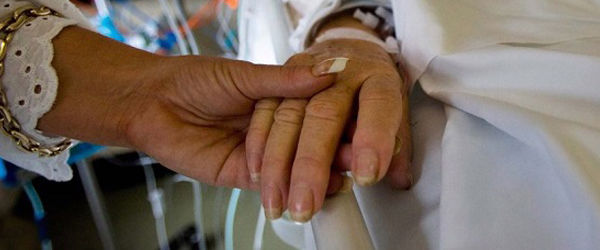Every week I get calls from distressed parents seeking solutions for their children who are struggling in school. I’ve answered these kinds of calls for more than 20 years. But I don’t think I will ever get used to it.
To me, the solution is so simple. If applied, it would prevent so much damage done to students who struggle in the traditional classroom and the accompanying heartache their families experience.
What do you do when your child is suffering at school, is sad or even depressed? Maybe he’s saying things like: I’m just stupid. I’ll never get it. I hate school — I can’t go there anymore. Some of these parents decide to home-school their children. But very few are able to do that.
My heart goes out to those whose only choice they have is to continue with the current school situation, because that child will continue to grow up with a negative self-image, believing that he/she is not very smart and has nothing to contribute.
What makes me the saddest is when the calls come from parents whose children attend a Catholic school. Last month I heard two more stories of children not measuring up to the academic standards in two different Catholic schools, and the families having no choice but to leave those schools.
I myself attended Catholic elementary and high schools. For the most part, I loved my experience. But that’s because I was one of the “smart” kids, one of those three to five in every classroom who gets A’s. Why? Because I had the magic formula — my learning style fit perfectly in a classroom that is set up for learners who do best with print, writing and listening modalities; who are born to organize and plan ahead; and who have an auditory-language talent.
What about the others — the more than 80% who are picture, hands-on, whole body, or verbal learners? They fall somewhere on the continuum of “average” to “failure” and most continue to define themselves that way as adults.
For years my hope and dream has been that Catholic schools would take on the challenge of honoring each child’s learning style. No longer would students receive D’s or F’s. No longer would late readers be considered special education kids. No longer would parents need to take those children out of Catholic school because they believe they would have a better chance in public school. Catholic schools would be the nurturing places they are meant to be, places where every single child can succeed according to his own abilities, not according to some academic standard.
In a 2012 article for The Tidings called “Being About My Father’s Business,” I wrote: “Every single child must ‘be about his/her Father’s business.’ That means all children must discover how wonderfully God made them and what He wants them to do in this world…. If children are not celebrated and acknowledged for the wonderful ways that God made them and for their unique contributions, they will not be able to discern their mission here on earth during their growing up years.”
I wrote this article for parents, but it applies just as much to schools and teachers. The tragedy is that too many children are growing up thinking they are failures or “not good enough” because too many classrooms are stuck in a basic one-size-fits-all model.
I am encouraged to see that the Los Angeles Archdiocese’s Department of Catholic Schools includes the following in the mission statement, under the heading, “Understand Their Gifts”: “We encourage all students towards excellence, but most importantly to use their gifts and talents in service to others.”
The question is, how to do this? What will it take?
To be continued March 21.
Mariaemma Pelullo-Willis is a California credentialed teacher and holds a Master’s Degree in Special Education. On March 17, she will speak to parents on “Allowing Our Children to Discover Their Mission in Life” as part of the University Series at Our Lady of the Assumption Church, Ventura. Write to her at: [email protected]. ¬© Mariaemma Pelullo-Willis

